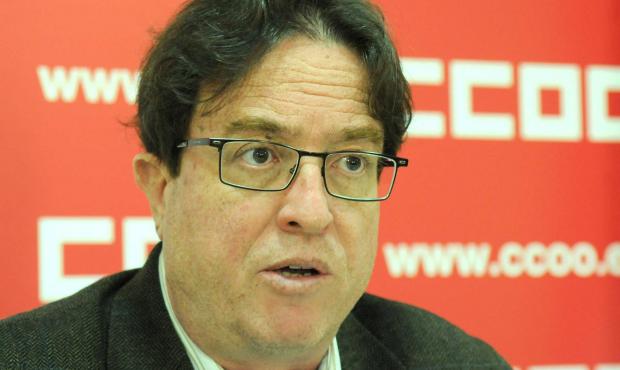Fuente CCOO / 8 de junio de 2016
«Es urgente reformar la normativa que regula la formación dual, más aún en el contexto de precariedad en el empleo y concentración de la oferta en pocos sectores. Si las prácticas deben servir a la mejora de la cualificación de los jóvenes hay que garantizar su calidad, así como una retribución justa para los aprendices», asegura Javier López, secretario confederal de Formación de CCOO.
Las Organizaciones empresariales y sindicales de los 27 países de la Unión Europea, representadas por BUSINESSEUROPE (Confederación Europea de Gran Empresa), CEEP (Confederación Europea de Empresas de Servicios), UEAPME (Confederación Europea de Pequeñas y Medianas Empresas) y CES (Confederación Europea de Sindicatos), han pactado solicitar a Comisión Europea el establecimiento de un diálogo tripartito destinado a alcanzar un acuerdo sobre un marco de calidad para la Formación Profesional que se desarrolla en la empresa.
En la reunión celebrada los días 26 y 27 de mayo en Bruselas, la Confederación Europea de Sindicatos presentó las conclusiones de su análisis de la situación de los aprendices en la Unión Europea y fijó veinte criterios de calidad para las prácticas en la Formación Profesional. Los representantes empresariales, por su parte, presentaron los resultados de un estudio sobre los costes y beneficios para las empresas de cooperar en la formación de aprendices.
A pesar de la diversidad de enfoques y realidades nacionales de la Unión, los agentes sociales han acordado unas bases mínimas para garantizar que el aprendizaje en la empresa resulte beneficioso para ambas partes, jóvenes en formación y empresas. En el acuerdo se señala la necesidad de que los sistemas de formación dual se desarrollen contando con la participación de los agentes sociales, porque aquellos países que tienen sistemas de formación dual consolidados, como Alemania, Dinamarca o Austria, cuentan también con un marco institucional participativo.
En el acuerdo se afirma la necesidad de contar con una regulación clara a nivel nacional, que establezca derechos y obligaciones de los jóvenes en formación y de las empresas, desde el punto de vista de las condiciones laborales y de la formación, incluyendo un pago o salario y protección social para los aprendices.
El acuerdo considera también que las prácticas en las empresas son un instrumento de aprendizaje, por tanto no pueden sustituir puestos de trabajo estructurales, y deben permitir a los jóvenes adquirir una cualificación reconocida. Lo anterior exige que profesores y tutores, tanto del centro de formación como de la empresa, cuenten con conocimientos actualizados.
Y se dice que jóvenes y empresas deben tener claros sus derechos y obligaciones, ya sea a través de un acuerdo formal o un contrato que, además de establecer garantías respecto a la calidad de la formación y la protección social durante el periodo de aprendizaje, debe incluir un pago o compensación, de acuerdo con lo establecido en los convenios colectivos o en el marco normativo nacional.
Según Gema Torres, representante de CCOO en el Comité de Educación de la Confederación Europea de Sindicatos, “para que todo esto sea posible se requiere un marco regulador claro a nivel nacional, que es precisamente lo que no tenemos en nuestro país, donde la formación profesional dual, ‘desregulada’ en un real decreto de 2012, permite que los jóvenes se encuentren con condiciones de formación y laborales muy distintas, en función del programa de formación o la administración responsable del mismo”.
Para CCOO, en España es urgente reformar la normativa que regula la formación dual, más aún en el contexto de precariedad en el empleo y concentración de la oferta en pocos sectores. Si las prácticas deben servir a la mejora de la cualificación de los jóvenes hay que garantizar su calidad, así como una retribución justa para los aprendices.
Javier López, Secretario de Formación de CCOO, concluye que “es imprescindible un marco regulador como el que pretende la Declaración europea, que garantice la calidad del aprendizaje en la empresa, pero junto a esto hay que generar empleo y trabajo de calidad para que los y las jóvenes tengan oportunidades reales de encontrar después un buen trabajo. Sin un empuje decidido por un modelo productivo sostenible, la formación dual y las prácticas en empresa serán otra vía añadida a la precarización laboral y a la devaluación del trabajo”.












 Users Today : 102
Users Today : 102 Total Users : 35404580
Total Users : 35404580 Views Today : 120
Views Today : 120 Total views : 3334160
Total views : 3334160